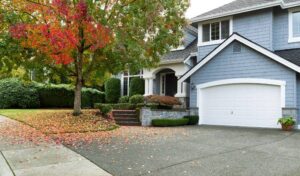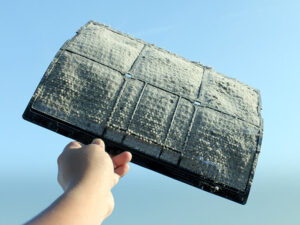How to Prevent Dirty Ductwork in Your Sarasota Home
Most homeowners try to keep their homes running cleanly and efficiently. There is a hidden problem, however, that often is overlooked. This problem is dirty ductwork, and it can occur without immediate outward signs. Grime and debris in ducts builds up over time and gradually diminishes air quality and potentially stresses your HVAC system. Avoid duct cleaning or duct replacement in the future by taking preventive measures right now. Here is how you can prevent dirty ductwork.
Why Dirty Ductwork Poses a Problem
Particles in ductwork eventually make their way into your HVAC equipment as well as to your indoor air. For your HVAC system, this can mean a faster buildup of grime inside the unit, which can cause system problems and a loss of efficiency. If you find that your air filters seem to be getting dirty faster, it may be due to dirty ductwork rather than external air pollutants.
The toll dirty ductwork takes on indoor air quality means you could see an increase in allergies and other health problems, such as asthma, related to contaminated air. Filth in the ductwork naturally enters the air you breathe in the home. Over time, these air quality issues will only worsen until the ducts are cleaned.
Preventing Dirty Ductwork
- Keep the home clean and dry. Some of the dust and dirt in a home eventually becomes airborne and finds its way into the ductwork. The same methods used to keep dust, germs, pollen and mold under control will help prevent dirty ductwork. This means keeping floors swept, vacuumed, mopped, and other surfaces clean as well. Be aware that mold can grow in ductwork anytime the house is kept too humid or in damp areas. Mold in the ductwork can cause significant problems because it releases a lot of mold spores into your indoor air. Prevent moldy ductwork by keeping indoor humidity down, using exhaust fans in the bathroom, kitchen and laundry room, fixing plumbing leaks and removing liquid spills.
- Clean new ductwork before installation. Often, new ducts have some oil and grime remaining on them from the manufacturing process, warehouse storage or from shipping. Make sure this is cleaned before the new ductwork is installed; otherwise, the oil and grime can travel to your HVAC equipment and indoor air. Any oil remaining inside new ductwork can also act as a magnet for attracting and holding additional dirt.
- Seal ductwork during remodeling projects. Remodeling stirs up a lot of dust, and certain types of remodeling projects will put extra particles, such as sawdust or drywall dust, into the air. If you do not seal ducts off before remodeling, much of this will end up in your ductwork. If your building contractor does not specify that ducts will be sealed, make sure he is planning to do that before the start of the project. A reputable contractor will understand why this is important.
- Keep your HVAC equipment maintained. Your HVAC system needs to receive a maintenance check to ensure everything is functioning optimally. In addition, dirt, mold and other types of debris build up in HVAC systems and can easily enter the ductwork if not removed. As part of standard preventive maintenance, your service technician will clean these pollutants off the equipment. This should be done at least once per year as part of your fall home maintenance. Also, remember to change your air filters often. Clogged filters eventually lead to dirty HVAC equipment, and this dirt can end up in ductwork. You should change most filter types and brands once per month.
- Have ducts inspected. Cracked, broken or deteriorating ductwork allows extra contaminants inside. Old ductwork is particularly vulnerable to structural problems, but even new ducts can come loose at the joints or develop other breaches in the structure. Fix problem areas, or replace ductwork if needed, as soon as possible to prevent dirty ductwork.
For more information on how to prevent dirty ductwork in your Sarasota home, please contact us at All American Heating & Cooling.
You May Also Like

3 Dangers of Skipping Fall Heat Pump Maintenance in Parrish, FL
As you transition from the scorching heat of summer into the slightly more comfortable fall in Parrish, FL, you’ll need to make… Continue Reading 3 Dangers of Skipping Fall Heat Pump Maintenance in Parrish, FL…

Why Does My Heat Pump Turn On and Off So Often?
Heat pumps take at least 10 minutes to cool the average home in Punta Gorda, FL. Anything shorter than that should be… Continue Reading Why Does My Heat Pump Turn On and Off So Often?…

Why Does My Heat Pump Blow Hot Air in Cooling Mode?
It’s frustrating when you set your heat pump to cool your home in Sarasota, FL, and only warm or hot air comes… Continue Reading Why Does My Heat Pump Blow Hot Air in Cooling Mode?…
